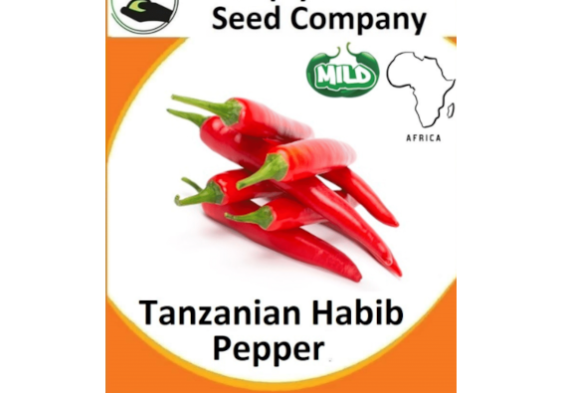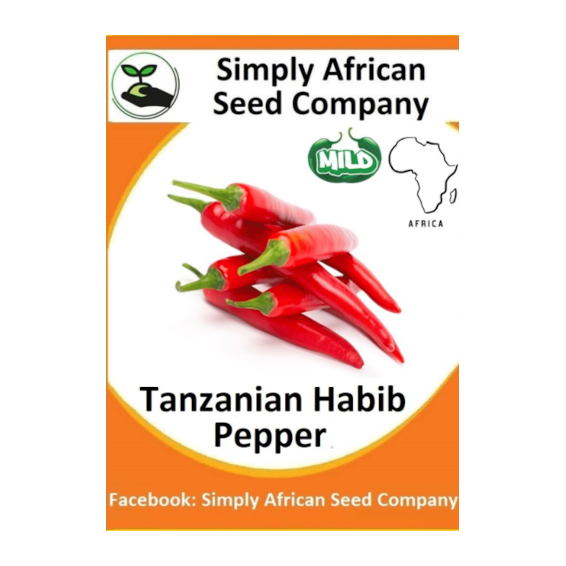HomeTanzanian Habib Pepper 15̵...


26 in stock
R26.00
The Tanzanian Habib pepper, also known as “Pilipili Habibi,” is a unique variety of chili pepper native to Tanzania. Here are some key characteristics: Appearance: Size: Small to medium-sized, typically around 1-2 inches in length. Shape: Usually elongated with a slightly curved or wrinkled surface. Color: Immature peppers are green, maturing to vibrant red, though […]
The Tanzanian Habib pepper, also known as “Pilipili Habibi,” is a unique variety of chili pepper native to Tanzania. Here are some key characteristics:
The Tanzanian Habib pepper is valued not only for its heat but also for its unique flavor profile, making it a staple in East African cooking and a favorite among chili enthusias
Every seed variety undergoes organic cultivation and self-testing on our South African, Botswanan, Zambian, and Tanzanian farms. Our commitment lies in offering a diverse selection of organically grown, open-pollinated, Non-GMO seeds, proudly produced and acclimated locally.
Before planting, please verify the conditions in your area suitable for the specific seed type. Growth rates and germination times hinge on various factors like soil conditions, rainfall/watering patterns, climate, and more. The outcome of growth and harvest may be influenced by these conditions.

Every seed variety undergoes organic cultivation and self-testing on our South African, Botswanan, Zambian, and Tanzanian farms. Our commitment lies in offering a diverse selection of organically grown, open-pollinated, Non-GMO seeds, proudly produced and acclimated locally. Before planting, please verify the conditions in your area suitable for the specific seed type. Growth rates and germination times hinge on various factors like soil conditions, rainfall/watering patterns, climate, and more. The outcome of growth and harvest may be influenced by these conditions.